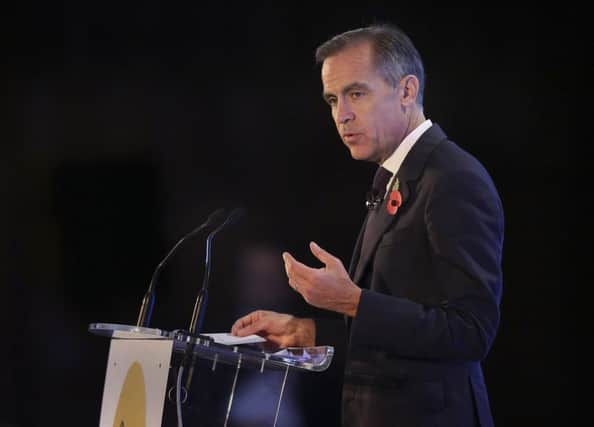Carney warns Brexit vote could trigger '˜technical recession'


Mr Carney said a recession - two quarters in a row of falling output - was one of the possible outcomes from a Brexit vote, but that the Bank had not compiled formal forecasts.
In its latest quarterly inflation report, the Bank said a vote to leave the EU could “materially” hit UK growth and cause the pound to fall “sharply”, seeing inflation spike higher, while the economy would suffer as households and businesses reined in spending.
Advertisement
Hide AdAdvertisement
Hide AdIt added that households could face higher interest rates as bank funding costs increased.
This could have a knock-on effect on house prices, while unemployment could also rise as firms put recruitment on hold, the Bank said.
The warning came as the Bank slashed its growth outlook for the next three years and kept rates on hold at 0.5%, where they have been since March 2009.
Mr Carney said the uncertainty in the UK economy was running at levels “not seen since the euro-area crisis” and added there was also a risk it could take its toll on the global economy.
Advertisement
Hide AdAdvertisement
Hide AdThere could be a “negative spill-over to global financial conditions because of the uncertainty generated by this country”, he said.
He said the Bank would “use all our tools” to support the economy after the referendum, but cautioned it was unable to “offset all the effects” of a Brexit vote.
Chancellor George Osborne said the Bank’s report showed a “lose-lose” outcome for the UK if Britons voted to leave the EU in a “clear and unequivocal warning” over the impact of Brexit.
He said: “Either families would face lower incomes because inflation would be higher, or the economy would be weaker with a hit to jobs and livelihoods.
Advertisement
Hide AdAdvertisement
Hide Ad“This is a lose-lose situation for Britain. Either way, we’d be poorer.”
Forecasts in the report were based on a vote to remain in the EU, but showed that uncertainty ahead of next month’s referendum was expected to see gross domestic product (GDP) slow to 0.3% in the second quarter from 0.5% in the first three months of 2016.